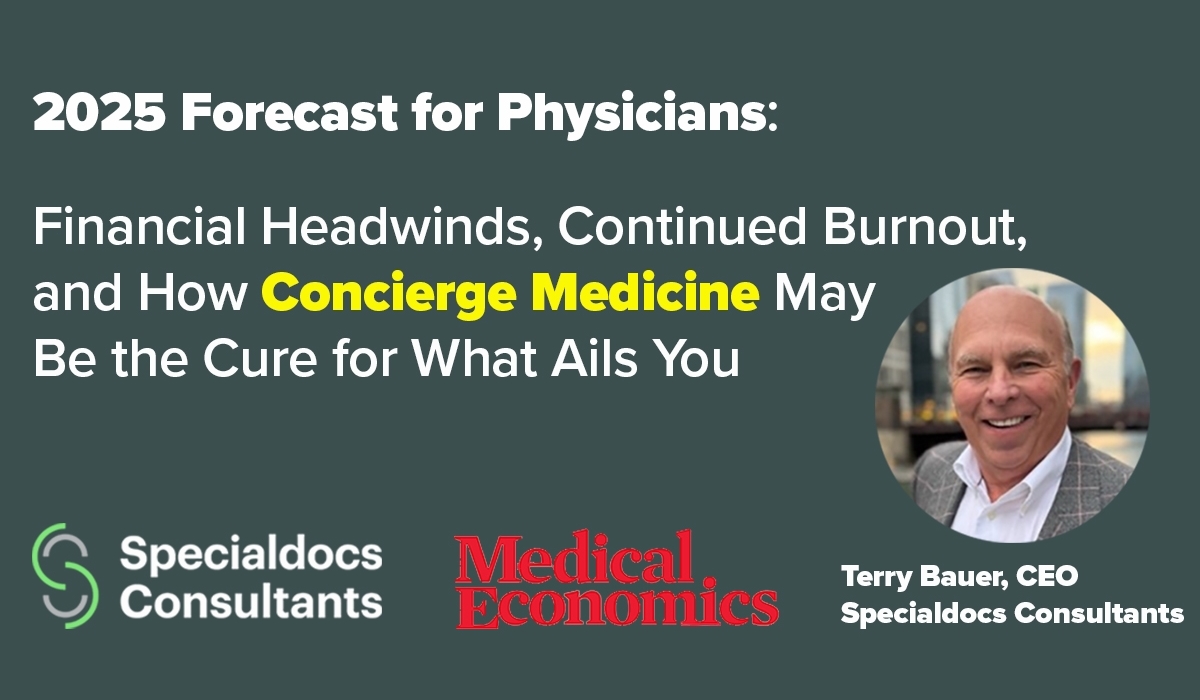In healthcare change is inevitable, but for independent physicians already facing headwinds that threaten to topple private medical practices in 2025, the uncertain direction of the new administration is sparking even more concern. To help decipher the implications of an evolving healthcare landscape, Medical Economics hosted an exclusive webinar with Specialdocs CEO Terry Bauer and Coker Chairman Max Reiboldt, tapping into their collective century of experience guiding physicians on career strategies.
What are you hoping to achieve in 2025? If you’re looking for the independence to practice your best medicine and achieve a rare work-life balance, then consider contacting us today to help us determine if you’re a good candidate for concierge medicine. Specialdocs Consultants is here to answer all your questions and guide you every step of the way towards building your concierge practice.
Here are some of their sage insights on why concierge medicine offers one of today’s – and tomorrow’s – most viable solutions to retaining independence in the face of declining reimbursements, rising operating costs and relentless burnout:
- Independent practices shrinking: Independent physicians now make up just 22% of all practices, threatened by rising costs and Medicare reimbursement cuts, which have led to a 29% decline in compensation over two decades. Further reductions are expected this year as federal spending efforts intensify.
- Regulatory shift: The Trump administration is expected to take a more lenient approach to healthcare regulation, easing antitrust enforcement.
- Payer challenges: While commercial payers remain profitable, rising insurance rates without corresponding provider reimbursement increases may drive more physicians toward concierge medicine.
- Saving primary care: Despite their critical role, primary care physicians remain undervalued. Their options are limited to hospital employment, joining larger groups, or transitioning to concierge medicine.
- Concierge model for value-based care: Unlike traditional fee-for-service models, concierge medicine consistently prioritizes quality care, benefiting both doctors and patents. Bauer maintained that concierge medicine is the only model that consistently delivers on the pillars of value and quality in healthcare, bringing significant benefits for physicians, patients, payers and the healthcare system.
- AI in healthcare: While AI holds potential, concerns over cost, liability, and its ability to replace human relationships leave its future impact uncertain.
- Reasons for optimism: Despite challenges, physicians remain dedicated to high standards of care. The current system’s instability may drive meaningful transformation, with concierge medicine emerging as a fulfilling and sustainable solution.
